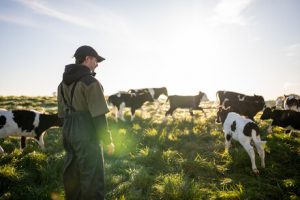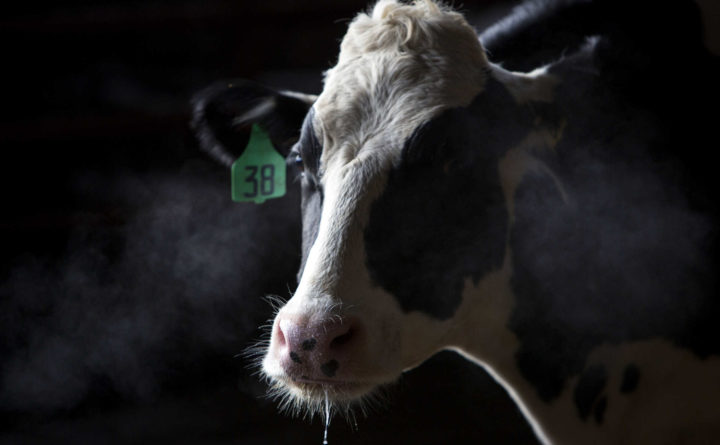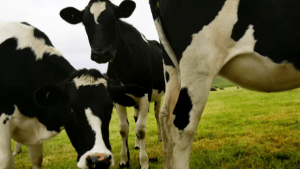
It should come as no surprise that the dairy industry has taken its share of hits over the past several years due to falling milk prices and reduced consumption. However, Michigan State University Extension Dairy Educator Marianne Buza said things are beginning to improve.
“The cow number isn’t decreasing and the amount of milk isn’t decreasing, but the market is stabilizing,” Buza said.
Although the market is beginning to turn around, Buza said dairy farmers aren’t out of the woods yet, because there are other factors involved in the decreasing number of heritage farms.
“You don’t have to get bit, but if you’re not big, you have to be really efficient and watch all of your costs,” she said.
According to Buza, when she joined MSUE in 2015, the county had approximately 42,000 cows. That number has since increased to 46,000 cows. However, the number of farms has dropped in the region. Buza said in Sanilac County there has been an even greater exodus of farmers leaving the industry.
According to the US Department of Agriculture Census Data, more than 10% of the state’s dairy herd is located in Huron County.
Buza said one of the biggest challenges heritage farms face is multiple generations trying to live off one farm, where it is unable to support them. Buza said MSUE could help families who are looking to pass their farm down to the younger generations. By the time a farm is passed on to the next generation, there is typically substantial accumulated debt, which prevents the farm from being profitable and supporting a family.
One of the causes of the struggle is the increased lifespan of people, now commonly living into their 80s and beyond.
“We have a farm management team that focuses on farm financials,” Buza said. “We can help them develop a succession plan.”
Buza said MSUE has tried to hold workshops on the topic, but feels one-on-one is a better approach.
“We have held workshops on succession planning, but at the end of the day it is so personalized and everyone’s situation is different.”
There is no cost involved in developing these plans because MSUE is county, state, federally and college supported.
Another possibility farmers could consider to increase profitability is the cottage industry, selling finished product direct to market, such as artisan cheeses.
“For a lot of farmers who are interested in staying small, where they are able to manage cows and not employees, I think the cottage industry could be a solution,” Buza said. “Processing their own milk and selling direct to the consumer is a way they could do that.”
Buza said some of the farmers she has spoken to about the cottage industry are concerned because they aren’t interested in owning and operating a store. However, there are grant programs available to help establish a cottage industry. Buza said areas with high tourism could be ideal markets, but are not without their challenges.
“I think with the tourism industry in Caseville and Port Austin, there definitely would be a good opportunity for someone to get into the cottage industry,” she said. “I talked to a farm in Texas and they said they didn’t make money for the first three years, so you have to have off-farm support to make that work.”
However, at the end of the day farmers will need to consider their agreements with the cooperatives. Buza said some cooperatives aren’t willing to allow farmers to sell direct to the consumer.
For more information about the various programs offered by Huron County’s MSUE, contact the office at 989-269-9949.

























